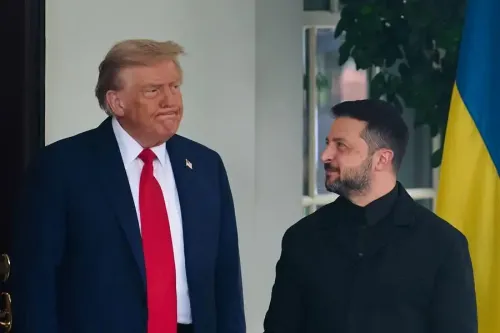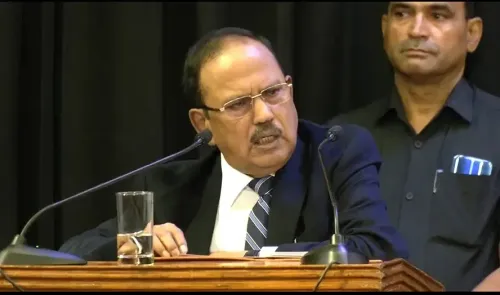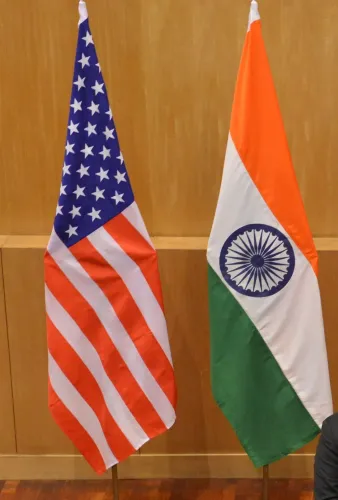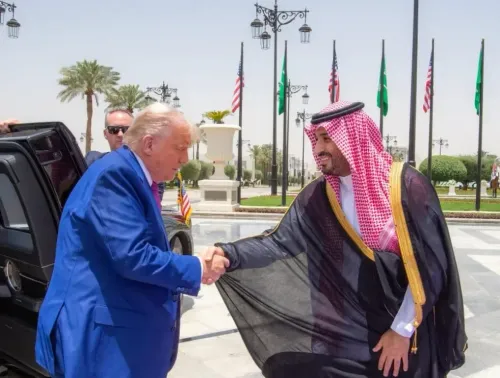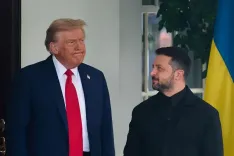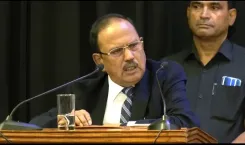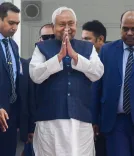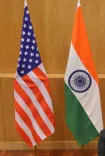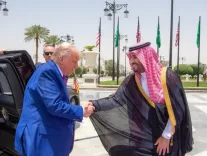Could a Meeting Between Putin and Zelensky Include European Leaders?
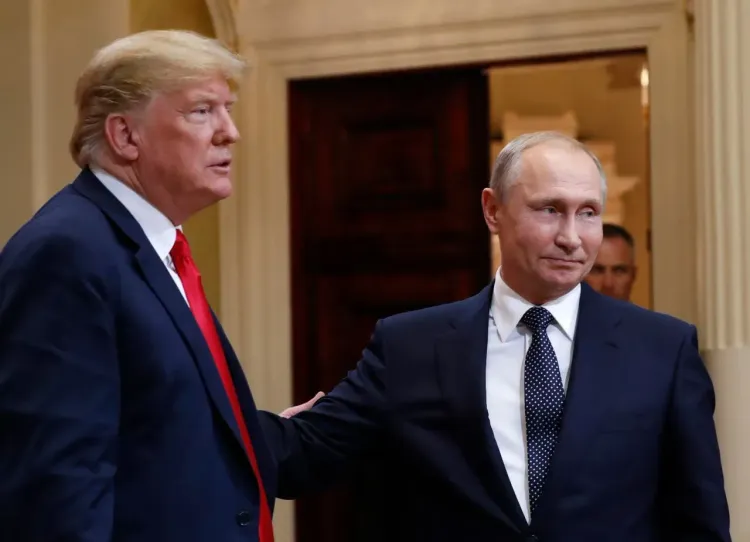
Synopsis
Key Takeaways
- Trump seeks to broker peace between Putin and Zelensky.
- European leaders may be included in discussions.
- Exclusion of Zelensky raises concerns about the validity of outcomes.
- Meeting set against a backdrop of ongoing conflict.
- Potential for a trilateral meeting in the future.
Washington, Aug 15 (NationPress) - US President Donald Trump has stated that European leaders might join the anticipated meeting he aims to facilitate between Russian President Vladimir Putin and Ukrainian President Volodymyr Zelensky, which is focused on ending the ongoing conflict.
"The more significant meeting will be the second one we're organizing," Trump mentioned on Thursday in the Oval Office prior to his Friday discussion with Putin in Alaska.
"We will have a meeting with President Putin, President Zelensky, myself, and possibly some European leaders, although that remains uncertain."
Trump expressed optimism that both Putin and Zelensky are prepared to pursue peace following more than two years of hostilities, though he acknowledged that resolving the conflict in Ukraine has proven to be more challenging than he initially anticipated.
"We will see if they can come to an understanding," Trump remarked.
"I thought this would be the easiest situation to resolve, but it has turned out to be the most complicated."
"We will find out what unfolds," he mentioned regarding his upcoming summit with Putin in Alaska.
"I believe President Putin will seek peace. I believe President Zelensky will seek peace. If they can find common ground, it would be fantastic."
Trump also set realistic expectations for Friday's discussions, emphasizing that the primary focus should be on bringing Putin and Zelensky together for meaningful dialogue.
US and Russian officials are set to gather in Alaska ahead of the much-anticipated meeting between Presidents Trump and Putin.
This meeting marks their first face-to-face interaction in six years, as Trump aims to fulfill a significant campaign promise to end Russia’s military actions in Ukraine.
The US President, who has positioned himself as a global peacemaker, hopes to utilize his personal rapport with Putin to achieve a ceasefire breakthrough where others have struggled.
On Thursday, he assessed a "25 percent chance" of the meeting's success.
Zelensky has been excluded from these discussions and cautioned that any decisions made without his presence would lack validity.
Friday's meeting will occur entirely on a local US military base, reflecting heightened security concerns and the limited duration of the planned encounter, which is expected to last only a few hours.
The summit comes precisely one week after Trump's ultimatum for Russia to agree to a ceasefire or face stringent new sanctions.
It was always improbable that Kyiv and Moscow, engaged in a brutal conflict since Russia's full-scale invasion of Ukraine in 2022, would reach a ceasefire agreement before the deadline.
Europe finds itself in a precarious position, caught between both sides and excluded from Friday's negotiations.
During their last-minute conversation with Trump on Wednesday, European leaders emerged cautiously optimistic that once in Alaska, the US President would advocate for their interests.
Like Ukraine, they have experienced several tumultuous months, during which Trump had a notable confrontation with Zelensky and subsequently halted military assistance to Kyiv—a stark contrast to his predecessor, Joe Biden.
Ukraine has also been marginalized ahead of Friday's event.
Despite Zelensky's protests that any agreement reached by Trump and Putin without input from Kyiv would be considered "dead decisions," it became increasingly evident that the US-Russia meeting would remain a strictly bilateral affair.
While he took care to maintain rapport with Trump, Zelensky felt compelled to intervene after the US President's casual remarks about the need for "some swapping, changes in land" between Russia and Ukraine.
"We will not retreat from the Donbas. That is not an option," the Ukrainian President stated, displaying a hint of frustration as discussions about potential territorial concessions intensified.
"Everyone seems to overlook the initial point: our territories are under illegal occupation. For the Russians, the Donbas serves as a launching pad for future offensives," he asserted, explaining that conceding this region would pave the way for further conflict on Ukrainian soil.
Like many of his fellow citizens, Zelensky firmly believes that Putin aims to undermine Ukraine's sovereignty and populace, and any concession to Russia could provoke renewed and potentially catastrophic aggression in the near future.
This is why he has persistently advocated for a seat at the table with Trump and Putin.
Although this will not occur during Friday's summit, the US President has promised to update Zelensky promptly afterward and hinted at a desire for a "quick" trilateral meeting in the near future.
The potential benefits for Putin from such a meeting remain unclear.
The Kremlin has consistently stated that Putin and Zelensky have no justification for meeting until much later in the negotiation process.

